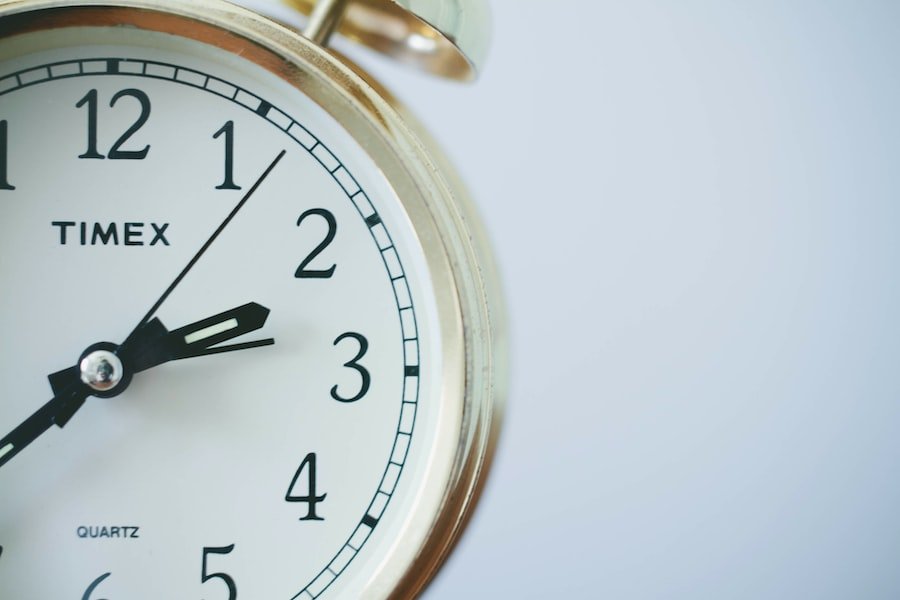

Time and Frequency: Adjectives to Express Duration in Norwegian
In the Norwegian language, time and frequency are expressed using a variety of adjectives. Adjectives play a crucial role in describing the duration of an event or the frequency at which something occurs. By using the appropriate adjectives, speakers can convey specific information about time and frequency in a clear and concise manner.
Table of Contents
ToggleKey Takeaways
- Time and frequency are important concepts in Norwegian language
- Adjectives play a crucial role in expressing duration
- Basic adjectives for time include “minutt” (minute) and “time” (hour)
- Advanced adjectives for time include “årstid” (season) and “værtype” (weather)
- Adjectives for frequency include “aldri” (never) and “alltid” (always)
The Importance of Adjectives in Expressing Duration
Adjectives are essential in expressing duration in Norwegian because they provide specific information about the length of time an event or action takes place. Without adjectives, it would be challenging to convey the exact duration of an activity or describe how long something lasts. Adjectives allow speakers to be precise and accurate when discussing time-related topics.
Basic Adjectives for Time in Norwegian
In Norwegian, there are several basic adjectives that are commonly used to express time. These adjectives include “lang” (long), “kort” (short), “tidlig” (early), and “sent” (late). For example, if someone wants to say “I have a long day ahead,” they would say “Jeg har en lang dag foran meg.” Similarly, if someone wants to say “The meeting starts early,” they would say “Møtet starter tidlig.”
Advanced Adjectives for Time in Norwegian
| Adjective | Translation | Example |
|---|---|---|
| Tidlig | Early | Vi må stå opp tidlig i morgen. |
| Sen | Late | Jeg kom hjem sent i går kveld. |
| Tidkrevende | Time-consuming | Å lære et nytt språk kan være tidkrevende. |
| Tidsbesparende | Time-saving | Å bruke en oppvaskmaskin er tidsbesparende. |
| Tidsbegrenset | Time-limited | Vi har en tidsbegrenset mulighet til å kjøpe billetter. |
| Punktlig | Timely | Det er viktig å være punktlig i forretningsverdenen. |
In addition to the basic adjectives for time, there are also more advanced adjectives that can be used to express specific durations or time intervals. These adjectives include “kortvarig” (short-lived), “langvarig” (long-lasting), “nøyaktig” (exact), and “omfattende” (extensive). For example, if someone wants to say “The concert was short-lived,” they would say “Konserten var kortvarig.” Similarly, if someone wants to say “The project took a long time,” they would say “Prosjektet tok lang tid.”
Adjectives for Frequency in Norwegian
When expressing frequency in Norwegian, adjectives are used to describe how often something occurs. Common adjectives for frequency include “ofte” (often), “sjelden” (rarely), “aldri” (never), and “regelmessig” (regularly). For example, if someone wants to say “I often go for a run,” they would say “Jeg går ofte på joggetur.” Similarly, if someone wants to say “He rarely visits his family,” they would say “Han besøker sjelden familien sin.”
Using Adjectives to Describe Time Intervals

Adjectives can also be used to describe time intervals in Norwegian. These adjectives provide information about the specific time frame within which an event or action takes place. Common adjectives for describing time intervals include “daglig” (daily), “ukentlig” (weekly), “månedlig” (monthly), and “årlig” (yearly). For example, if someone wants to say “I have a weekly meeting,” they would say “Jeg har et ukentlig møte.” Similarly, if someone wants to say “She goes on a yearly vacation,” they would say “Hun drar på årlig ferie.”
How to Use Adjectives to Express Time of Day in Norwegian
Adjectives can also be used to express the time of day in Norwegian. These adjectives provide information about whether it is morning, afternoon, evening, or night. Common adjectives for expressing time of day include “morgen” (morning), “ettermiddag” (afternoon), “kveld” (evening), and “natt” (night). For example, if someone wants to say “I wake up in the morning,” they would say “Jeg våkner om morgenen.” Similarly, if someone wants to say “We have dinner in the evening,” they would say “Vi spiser middag om kvelden.”
Adjectives for Time in Relation to Seasons in Norwegian
Adjectives can also be used to express time in relation to seasons in Norwegian. These adjectives provide information about the specific season during which an event or action takes place. Common adjectives for expressing time in relation to seasons include “vår” (spring), “sommer” (summer), “høst” (autumn), and “vinter” (winter). For example, if someone wants to say “I love skiing in the winter,” they would say “Jeg elsker å stå på ski om vinteren.” Similarly, if someone wants to say “We go swimming in the summer,” they would say “Vi bader om sommeren.”
Adjectives for Time in Relation to Weather in Norwegian
Adjectives can also be used to express time in relation to weather in Norwegian. These adjectives provide information about the specific weather conditions during a particular time. Common adjectives for expressing time in relation to weather include “solrik” (sunny), “regnfull” (rainy), “snødekt” (snowy), and “varm” (hot). For example, if someone wants to say “I enjoy picnics on sunny days,” they would say “Jeg liker å ha piknik på solrike dager.” Similarly, if someone wants to say “We stay indoors on rainy days,” they would say “Vi holder oss inne på regnfulle dager.”
Common Phrases Using Adjectives for Time and Frequency in Norwegian
There are several common phrases that use adjectives for time and frequency in Norwegian. These phrases are commonly used in everyday conversations and provide a concise way to express time-related information. Some examples of common phrases include “hver dag” (every day), “en gang i uken” (once a week), “to ganger i måneden” (twice a month), and “hvert år” (every year). For example, if someone wants to say “I exercise every day,” they would say “Jeg trener hver dag.” Similarly, if someone wants to say “We have a team meeting once a week,” they would say “Vi har et teammøte en gang i uken.”
In conclusion, adjectives play a crucial role in expressing time and frequency in the Norwegian language. They allow speakers to convey specific information about the duration of an event or the frequency at which something occurs. By using the appropriate adjectives, speakers can effectively communicate their intended meaning and provide clear and concise information about time-related topics. Whether describing duration, frequency, time intervals, time of day, seasons, or weather, adjectives are essential tools for expressing time and frequency in Norwegian.
If you want to learn Norwegian, you can register for classes here. We look forward to hearing from you and helping you become fluent in Norwegian.





